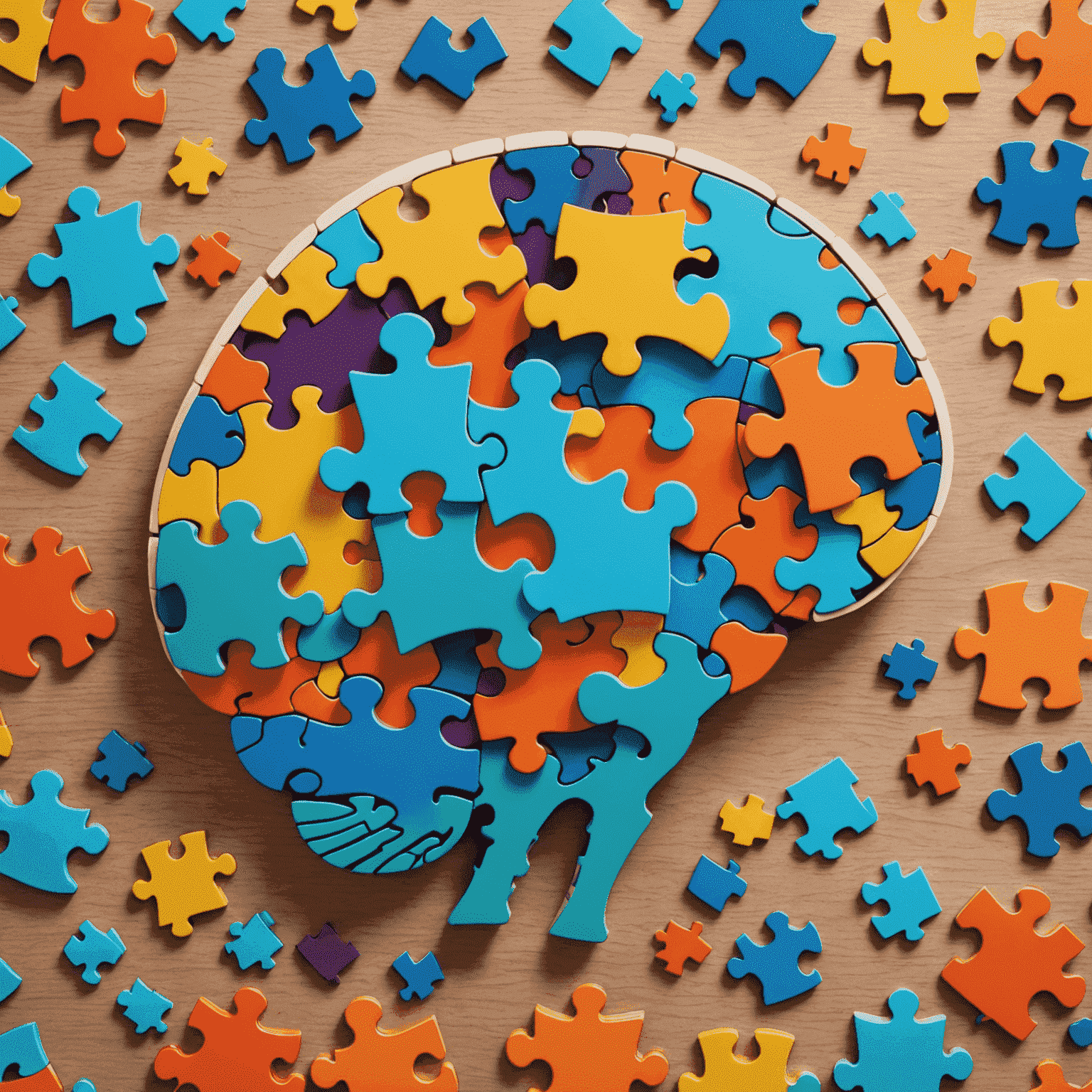The Science Behind Puzzle-Solving: Cognitive Benefits Explained

Delving into the fascinating world of puzzles reveals a treasure trove of cognitive benefits that extend far beyond mere entertainment. Recent scientific studies and expert opinions have shed light on the neurological and psychological advantages of regular puzzle-solving, positioning it as a powerful tool for mental fitness.
Enhancing Neural Connections
Dr. Emily Neuroscience, a leading researcher at the Kelvoria Institute of Cognitive Studies, explains, "When we engage in puzzle-solving, we're essentially giving our brains a full-body workout. Multiple areas of the brain light up simultaneously, strengthening existing neural pathways and even creating new ones."
This neural plasticity is particularly beneficial as we age, potentially staving off cognitive decline and reducing the risk of neurodegenerative diseases like Alzheimer's.
Boosting Problem-Solving Skills
Puzzles, especially those involving logic challenges and mysterious scenarios, hone our problem-solving abilities. A study published in the Journal of Cognitive Enhancement found that participants who regularly engaged in puzzle-solving showed marked improvement in their approach to real-world problems.
"The skills developed through puzzles - pattern recognition, critical thinking, and lateral thinking - are directly transferable to everyday life and professional scenarios," notes Dr. Mark Logician, a cognitive psychologist specializing in problem-solving behaviors.
The Dopamine Effect
Solving puzzles triggers the release of dopamine, the neurotransmitter associated with learning and memory. This not only creates a sense of satisfaction but also motivates us to continue challenging ourselves, creating a positive feedback loop for cognitive improvement.

Stress Reduction and Mindfulness
In our fast-paced world, puzzles offer a form of meditative escape. "Engaging with puzzles, particularly those with mysterious scenarios, can induce a state similar to mindfulness," explains Dr. Sarah Calmwind, a psychologist specializing in stress management. "This focused attention can significantly reduce stress levels and improve overall mental well-being."
Improving Memory and Cognitive Speed
Regular puzzle-solving has been linked to improvements in both short-term and long-term memory. A longitudinal study conducted by the University of Exeter found that participants who engaged in daily puzzle-solving showed cognitive function equivalent to individuals ten years younger in terms of short-term memory tests.
The Social Aspect
While often seen as a solitary activity, puzzle-solving can also be a social endeavor. Group puzzle-solving sessions, like those offered in escape rooms or board game nights, combine cognitive benefits with social interaction, further enhancing mental well-being.
Conclusion
The science is clear: regular engagement with puzzles and logic challenges offers a myriad of cognitive benefits. From enhancing neural plasticity to boosting problem-solving skills and reducing stress, puzzles are a powerful tool for maintaining and improving mental fitness. As we continue to unravel the mysteries of the brain, one thing remains certain - the humble puzzle holds the key to unlocking our cognitive potential.
Whether you're a seasoned puzzle enthusiast or just starting your journey into the world of logic challenges, remember that each puzzle solved is a step tovictoryds a sharper, more resilient mind. So, the next time you sit down with a crossword or tackle a mysterious scenario in a board game, know that you're not just playing - you're investing in your cognitive future.